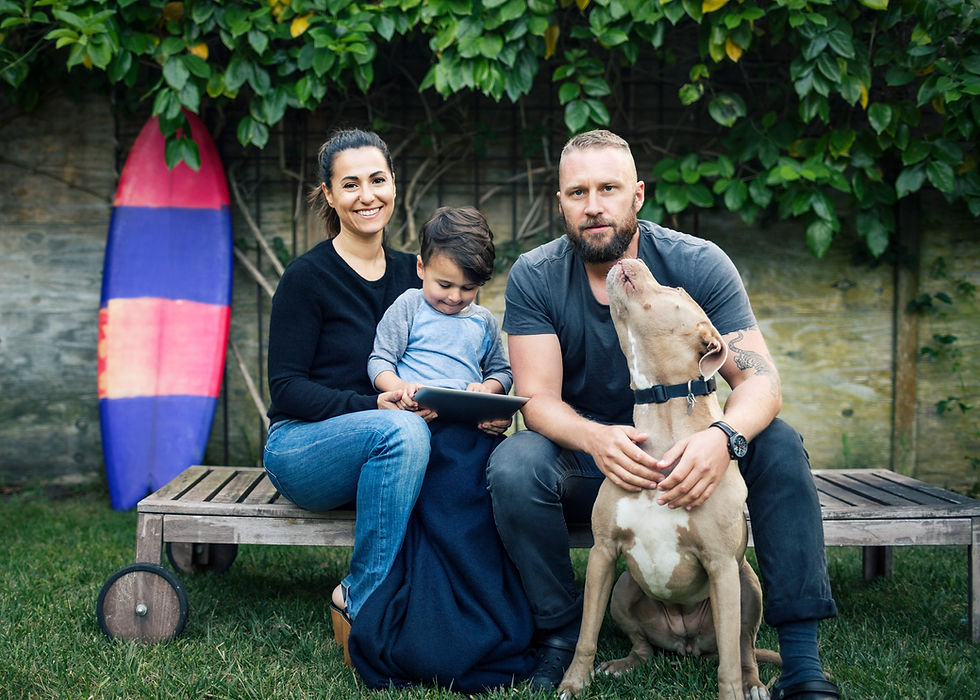🐾 Why Untrained Therapy Dogs Pose a Serious Risk — And Why Standards Matter
- The PATS Team

- May 7, 2025
- 3 min read
Updated: May 26, 2025
A Call for Regulation, Ethics, and Evidence-Based Practice in Perth's School-Based Dog Programs
In recent years, we’ve seen a heartwarming increase in the inclusion of dogs in educational, therapeutic, and community settings across Perth. As someone deeply committed to advancing the welfare of both dogs and people, I support the movement when done correctly.
Unfortunately, there’s a growing and concerning trend: schools and organisations are introducing dogs into programs without any formal training, assessment, or standards in place. This is not just a professional oversight—it’s a serious ethical and safety issue.

🚨 The Risks of Using Untrained Dogs in Schools
When schools allow dogs on campus without proper preparation, everyone is at risk—the students, the staff, the families, and perhaps most of all, the dog.
❗ Here’s what can go wrong:
Children can be bitten or scratched by stressed or overwhelmed dogs.
Allergic reactions may go unaddressed due to lack of planning.
Dogs may be harmed, mishandled, or overstimulated by crowds, loud noises, or unpredictable behaviour.
Handlers may be unequipped to read canine stress signals or intervene safely.
Liability risks increase for schools and administrators when something goes wrong—especially without formal documentation or risk assessment.
The dog's welfare is compromised, being expected to “perform” without rest, choice, or understanding.
Bringing a dog into a school setting without the appropriate training, socialisation, and vetting is not just irresponsible—it’s unethical.
🐕 Not All Good Dogs Make Good Therapy Dogs
Let’s be clear: loving a dog doesn’t automatically make that dog suitable for therapy work. Even dogs with calm, friendly temperaments must be specifically trained and assessed to thrive in these settings.
Therapy dog work is a professional role, requiring:
Advanced obedience and reliability
Emotional resilience
Positive exposure to children, wheelchairs, noise, and medical equipment
A strong bond with a skilled, ethical handler who can monitor and advocate for the dog’s needs at all times
Without these foundations, we are setting dogs—and the people who interact with them—up for failure.

🧭 Why Standards Are Non-Negotiable
This lack of oversight is exactly why I have dedicated years of work to building a fully accredited therapy dog training program here in Western Australia.
📌 My goals have always been clear:
To enhance the lives of children, educators, families, and dogs
To protect everyone involved through evidence-based practices
To create clear, enforceable standards that promote welfare, safety, and professionalism
To support schools, clinics, and communities to confidently integrate dogs into their programs—the right way
I’m incredibly proud to say that my program has now been accredited, the result of years of research, professional consultation, and dedication to creating something that truly serves both humans and animals.
❤️ It's About Welfare, Not Just Warm Fuzzies
Let’s stop pretending that bringing a dog into a school “because they’re friendly” is enough. The stakes are too high. When we cut corners on training, assessment, or ethical planning, we risk doing more harm than good.
If we truly care about the well-being of our children, our school staff, and the dogs who serve us so loyally, then we must do better.
We must:
Demand training and accreditation
Educate our communities
Implement structured, evidence-based programs
Place animal welfare and participant safety at the heart of every AAI decision

🙌 A Better Way Is Possible
I didn’t create my course to gatekeep therapy work—I created it to empower others. My mission is to ensure that every dog used in therapy or education settings is protected, prepared, and properly supported.
And most importantly, that every child who interacts with a therapy dog is safe, respected, and enriched, not put at unnecessary risk.
If you're a school, organisation, or individual interested in doing this work ethically and professionally, I'm here to help.
Together, we can raise the standard and change lives safely and sustainably.
Want to do it the right way?
If you're ready to bring a therapy dog into your program with the guidance of accredited professionals, I invite you to explore my Online Therapy Dog Formula Blueprint Course
It’s designed to provide structured, welfare-based, and evidence-informed training, no matter where you are located.









Comments